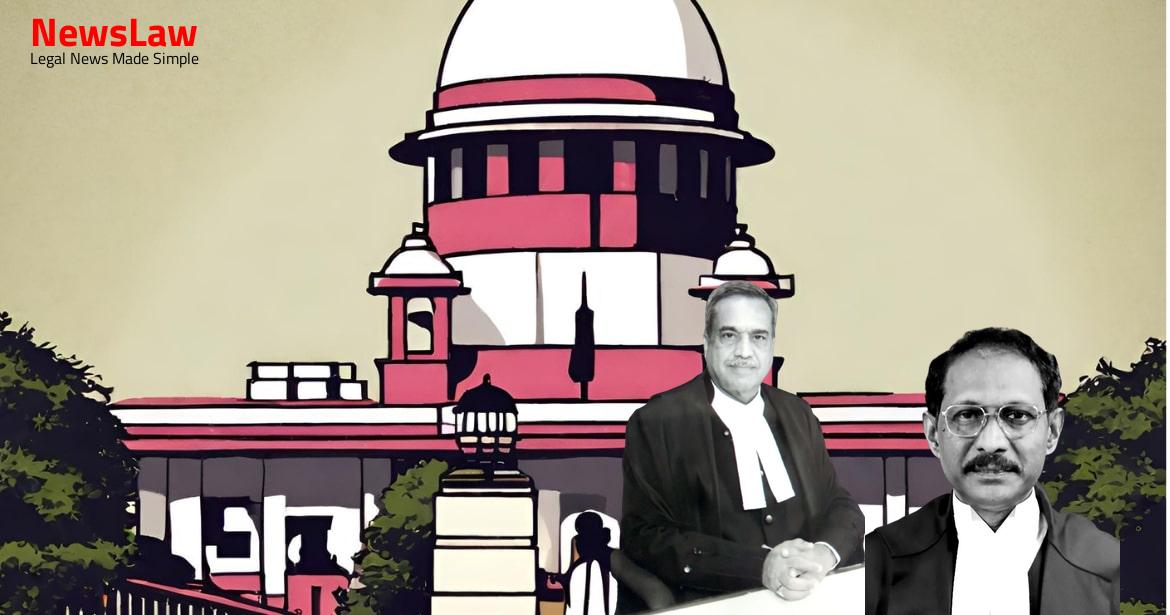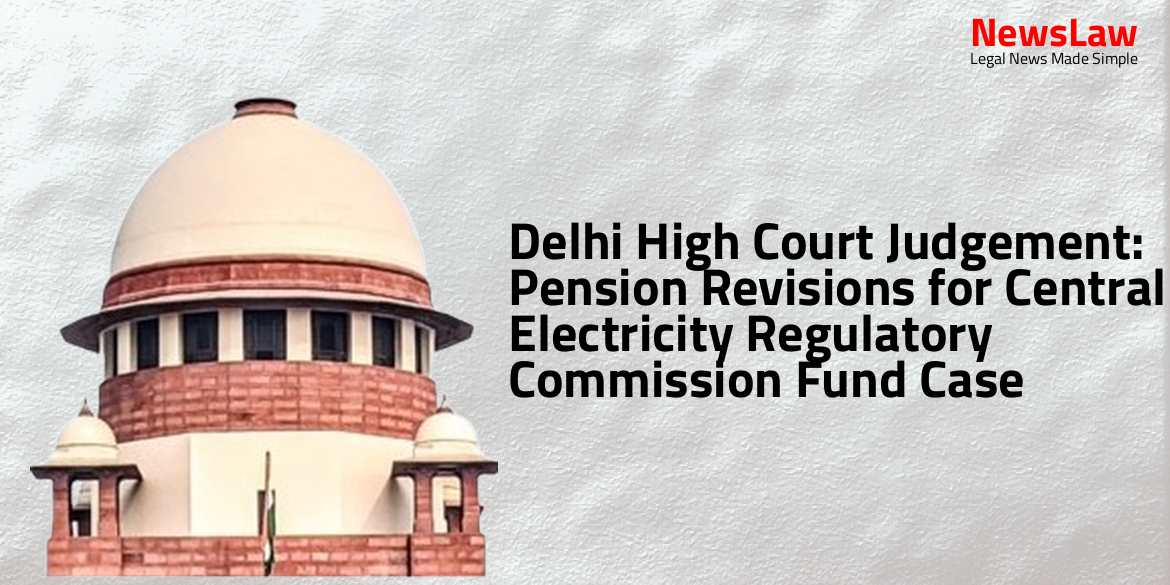In the case of ONGC vs. Workmen, the jurisdiction of the Tribunal to direct ONGC regarding the regularization of services is under scrutiny. The dispute arose when the Industrial Tribunal issued a directive in favor of the workmen, prompting ONGC to challenge the decision. The High Court and later the Supreme Court delved into the legal complexities of industrial disputes and labor laws. Stay tuned for a detailed analysis of this significant case.
Facts
- The High Court set aside the award of the Industrial Tribunal in favor of ONGC.
- The Constitution Bench of the Court overruled the decision in Piara Singh in the case of Secretary, State of Karnataka v Umadevi.
- The High Court relied on the judgment of the Court in PCLU (supra).
- The issue revolved around clause 2(ii) of the Certified Standing Orders for contingent employees of ONGC, with management contending no automatic regularization after 240 days in twelve consecutive months.
- The High Court’s decision was based on the Court’s rulings in PCLU (supra).
- The workmen were appointed as part of watch and ward security on a term basis with the condition that the Certified Standing Orders would not apply to them.
- Contract labor for watch and ward, dusting, and cleaning jobs was abolished by the Government of India under the Contract Labor (Regulation and Abolition) Act 1970 on December 8, 1976.
- ONGC utilized the services of former contract workmen through a labor cooperative society formed for their welfare as per an agreement with trade unions.
- ONGC challenged this arrangement in writ proceedings, stating that the workmen were initially selected in violation of the decision in Umadevi (supra) as no selection procedure was followed.
- Subsequently, the security work was handed over to the Central Industrial Security Force to protect the installations.
- The Industrial Tribunal issued an award directing ONGC to regularize the services of the workmen.
- A reference was made to the Industrial Tribunal to adjudicate on the management’s decision not to regularize the workmen and not to pay them equal wages as demanded by the workmen.
- The workmen alleged that ONGC engaged in unfair labor practices by keeping them on a temporary basis since 1988.
- A Writ Petition filed by the workmen was dismissed by a learned Single Judge.
Also Read: Environmental Violations Case: TNPCB v. Copper Slag Unit
Issue
- The issue in appeal was regarding the jurisdiction of the Tribunal to direct the Corporation to regularize the services of the workmen in question.
- The validity and legality of the Tribunal’s directive was being questioned.
- This issue is significant as it concerns the authority of the Tribunal in matters of regularization of services.
Also Read: High Court Upholds Decision on Minimum Eligibility Cut-Off in Judicial Promotions Case
Analysis
- The decision in Umadevi was applicable to Industrial Tribunals and Labour Courts.
- The industrial adjudication in the context of the law propounded in Umadevi.
- The interpretation of Item 10 of Schedule V of the ID Act in the PCLU case.
- The powers of Labour Court and Industrial Court in directing regularisation.
- The distinction made in Umadevi between irregular and illegal appointments for regularisation.
- The decision in PCLU did not consider the earlier judgment in Engineering Mazdoor Sangh pertaining to ONGC’s Certified Standing Orders.
- The Court found that the principles of law expounded in PCLU would require revisiting.
- In Mahatma Phule Agricultural University v Nasik Zilla Sheth Kamgar Union, the Court held that there could be no regularisation in the absence of posts.
- The Industrial Tribunal directed ONGC to regularise workmen when vacancies arose in regular posts, subject to completing 240 days of work and possessing minimum qualifications.
- The High Court modified the award of the Industrial Tribunal, but the Supreme Court found the Tribunal’s directions reasonable and set aside the High Court’s judgment.
- The submission for reconsideration of PCLU based on clause 2(ii) was rejected, with the Court noting the need to revisit the provision and consider earlier decisions including Engineering Mazdoor Sangh.
- PCLU arose from an industrial reference while the present proceedings are from a writ petition under Article 226.
- The Court found that the construction placed on clause 2(ii) of the Certified Standing Orders in PCLU does not appear to be correct.
- Reconsideration needed in PCLU on interpretation of clause 2(ii) of Certified Standing Orders
- Reconsideration needed in PCLU on meaning of unfair labour practice under Section 2(ra) read with Item 10 of the Vth Schedule of the ID Act
- Reconsideration needed in PCLU on limitations, if any, on power of Labour and Industrial Courts to order regularisation without sanctioned posts
Also Read: Protecting LGBTQ+ Rights: Supreme Court’s Landmark Judgment on Habeas Corpus Petitions
Decision
- Petitioners requested the Registry to place the proceedings before the Respondent No. 1.
- The request was made in relation to the RPC part of the judgment.
- The specific details of the proceedings and the parties involved were not provided in this request.
Case Title: OIL AND NATURAL GAS CORPORATION Vs. KRISHAN GOPAL (2020 INSC 147)
Case Number: C.A. No.-001878-001878 / 2016



